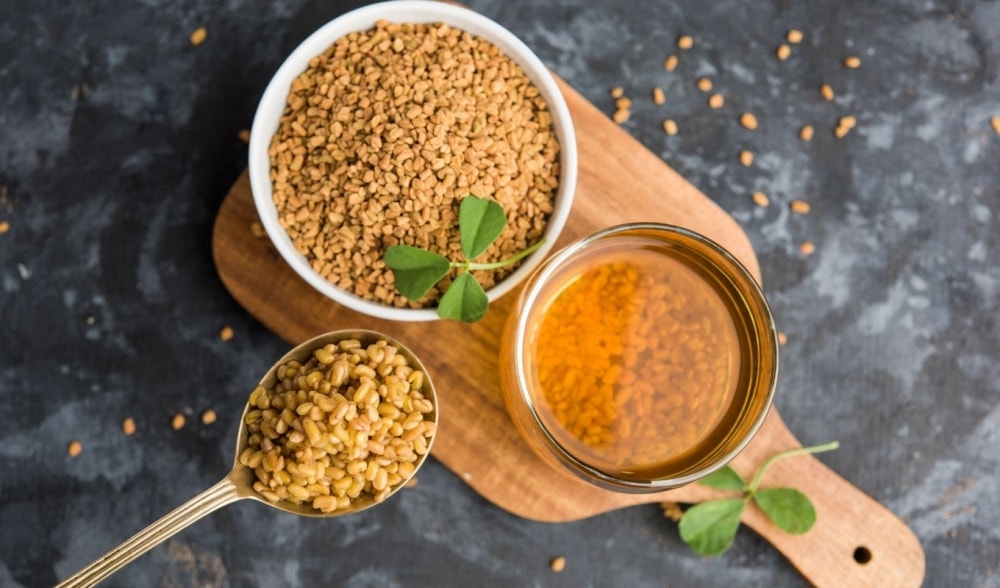ll fieno greco is a plant of the genus Trigonella , a term that refers to the triangular shape of its seeds and to the trigonella, a characteristic component of this plant. Fenugreek was already known in Persia and Ancient Egypt, while its cultivation in Europe probably began thanks to the work of Benedictine monks.
Fenugreek is an excellent source of vitamins, in particular it contains vitamin A, vitamin C and vitamins of group B. It also provides mineral salts such as calcium and iron. Fenugreek has several beneficial properties that have seen it spread as a food supplement, starting from antiseptic to anti-inflammatory action, as a tonic-restorative to being a hypoglycemic agent with emollient and expectorant properties. It is in fact a "multifaceted" phytotherapeutic element, rich in various bioactive elements, with the particular characteristic of having a hypoglycemic action, thanks to hydrophilic Fibre that hinder the activity of glucoactive enzymes (amylase) thus decreasing the availability of glucose in the blood. Furthermore, the present studies have revealed the activity of "hydroxyisoleucine" which, working in synergy with other elements, it stimulates the production of insulin and inhibits some enzymes responsible for increasing blood sugar. This is why fenugreek is said to be able to lower blood sugar in both type 2 and juvenile diabetes sufferers. Fenugreek contains steroid saponins that perform a cholesterol-lowering action, thanks to the ability of these active ingredients to bind with blood cholesterol and thus reduce its intestinal absorption.
Fenugreek is considered useful in case of swollen lymphatic glands, the appearance of acne and pimples which it can counteract thanks to its antiseptic and anti-inflammatory properties. The mucilages present in fenugreek help our skin stay young and hydrated and also contribute to the proper functioning of the intestine. From the mucilages it contains, anti-inflammatory properties are obtained and are indicated in the presence of irritation of the mucous membranes of the gastrointestinal and respiratory systems. These active ingredients thus help as they are able to decongest the tissues of the bronchi and lungs as well as to inflame the mucous membranes of the intestine in the presence of colitis or constipation, given the ability to increase their volume in contact with liquids,
It has long been known that fenugreek has galactogenic properties, that is, it has the ability to increase the production and quality of breast milk during breastfeeding, and in menopause instead to counteract hot flashes, insomnia, night sweats and mood swings. . The intake of fenugreek can also be recommended as a "tonic" in periods of particular psychophysical fatigue, asthenia or during convalescence, stimulating the appetite and improving situations of iron deficiency (anemia).


Comments
Write a comment about the article